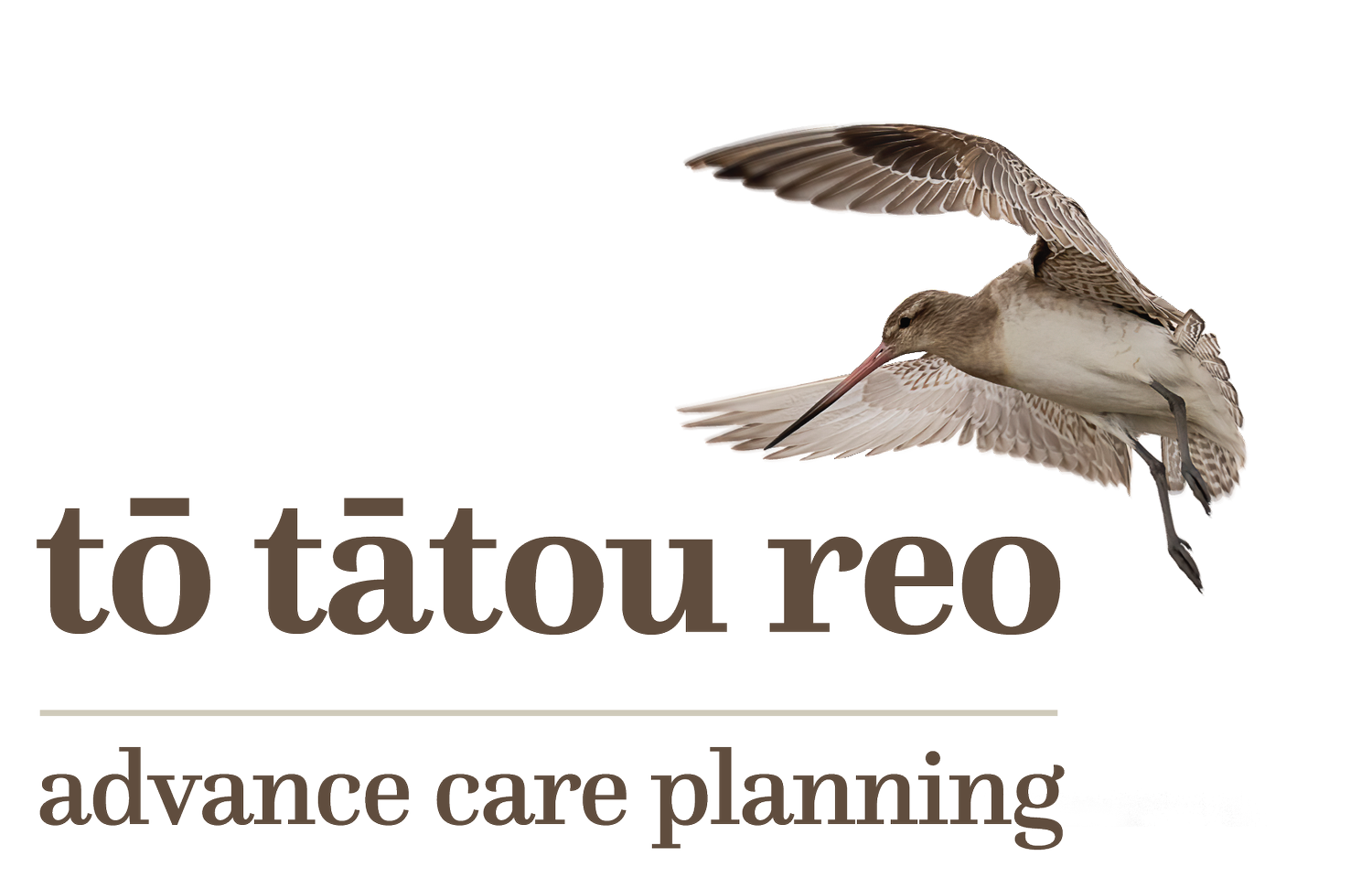Advance care planning conversation starters
Sometimes it can be easier to start an advance care planning conversation with some ready-crafted words.
Here are some you might like to try:
While you’re still well, it can be a good idea to start thinking about your future health care, and your values and beliefs, and make your preferences known to your whānau. We call this advance care planning.
Tell me what’s important to you and your whānau, and the treatment and care you might like or not like in the future.
Have you ever talked to your whānau about what would be important to you if your health changed suddenly?
Have you ever thought about who you would want to make decisions about your future health and treatment if you were not able to?
I’m wondering if we might have a conversation about what might be ahead for you, and what matters most to you [as your illness progresses/if things should change in the future], so we can provide the best possible care?
How to progress the conversation once it has started
Once you have established the person is happy to talk about their future health care, check in with them about their understanding of their current and likely future health. Then you can help them clarify any misunderstandings.
Once you and the person have a common understanding of their current and future health you can explore further what matters most to the person and their whānau. Here are some questions you could use:
What does quality of life look like for you?
What are your priorities if your health did get worse?
What worries you when you think about your health changing?
What abilities are so important for you, that you can’t imagine living without them?
If your health did get worse, how much are you willing to go through for the possibility of more time?
Remember to summarise what the person has shared with you and agree next steps together.
